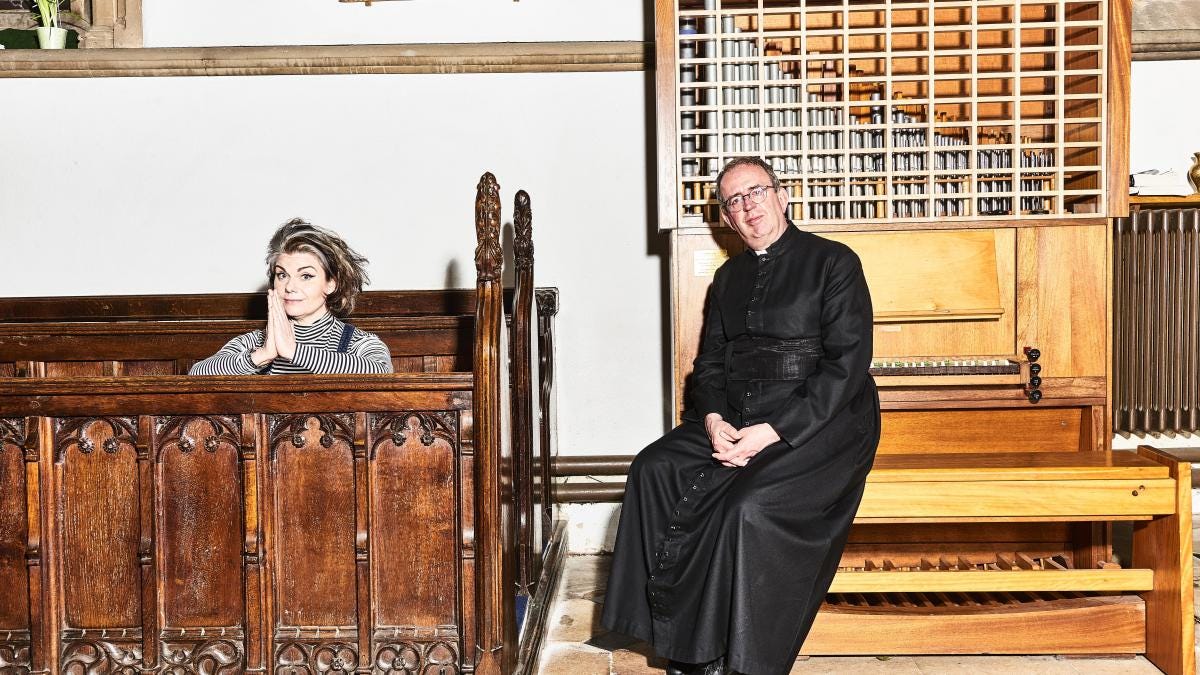Happy Friday!
I’m trying to put a happy face on what has been a grim week of news, so here is something cheering.
Behold a WhatsApp message from Martin Reynolds of Number 10, revealed in the Sue Gray report:
Say what you like, but I think we can all agree it’s unlikely that the British government is masterminding a vast conspiracy to e.g. conceal the existence of aliens/implant microchips in all of us/harvest our organs for their life-giving properties. If they did, they would be texting each other WELL DONE ON COVERING UP THE ALIEN ARRIVAL CAINO.
The man who sent that message, Martin Reynolds, has now left Number 10, and in a flourish of exquisite irony, is lined up to be our next ambassador to Saudi Arabia. All his experience holding secret alcohol-fuelled parties will undoubtedly be put to good use in Riyadh.
Helen

Thresholds of Violence (New Yorker, 2015)
An early theory was that a crowd cast a kind of intoxicating spell over its participants. Then the argument shifted to the idea that rioters might be rational actors: maybe at the moment a riot was beginning people changed their beliefs. They saw what was at stake and recalculated their estimations of the costs and benefits of taking part.
But [sociologist Mark] Granovetter thought it was a mistake to focus on the decision-making processes of each rioter in isolation. In his view, a riot was not a collection of individuals, each of whom arrived independently at the decision to break windows. A riot was a social process, in which people did things in reaction to and in combination with those around them. Social processes are driven by our thresholds—which he defined as the number of people who need to be doing some activity before we agree to join them. In the elegant theoretical model Granovetter proposed, riots were started by people with a threshold of zero—instigators willing to throw a rock through a window at the slightest provocation. Then comes the person who will throw a rock if someone else goes first. He has a threshold of one. Next in is the person with the threshold of two. His qualms are overcome when he sees the instigator and the instigator’s accomplice. Next to him is someone with a threshold of three, who would never break windows and loot stores unless there were three people right in front of him who were already doing that—and so on up to the hundredth person, a righteous upstanding citizen who nonetheless could set his beliefs aside and grab a camera from the broken window of the electronics store if everyone around him was grabbing cameras from the electronics store.
There are few common traits in all school shooters, except for them usually being young men. Malcolm Gladwell suggests looking at their personalities is the wrong approach; instead we should look at crowd dynamics—even when people are only in a virtual crowd.
The Rev Richard Coles: gay marriage, the Church of England and me (Times, £)
[Richard] Coles adjusts the dachshund – Pongo – on his lap, and continues. “I remember Desmond Tutu coming to talk to us when we were at college, and saying that, under apartheid, he was an archbishop, he had a doctorate, he was a Nobel prizewinner – but he didn’t have the vote. And when I look at the relationship I had with David – and the relationships friends have who also are in same-sex partnerships – they are full of grace and truth, and we should be celebrating that. Upholding it and sustaining it. A bishop – I won’t say which one – once said to me, ‘You must remember, Father, all institutions are demonic.’ Having worked for both the BBC and the Church of England, I think you can see there’s a certain power in that description.”
Caitlin Moran does Rev Richard Coles’s exit interview with the Church of England. I love this description of religious proselytising, which might also apply to politics: “We used to be persuasive – but now I feel like we hand hungry people a menu, but it’s in a language they don’t understand.”
Quick Links
Whatever happened to text-based roleplays? (Default Friend, Substack).
The Buffalo shooter had a toothache (Twitter).
In possibly the most British twist to the culture wars imaginable, the heir to a hereditary peerage has transitioned, and because of an exception to the 2004 Gender Recognition Act, is now legally a woman, except for the purposes of being a baron. Matilda Simon, 2nd Baron Wythenshawe, inherited the title ahead of her elder sister, and is putting herself forward to election as one of the 92 seats in the House of Lords reserved for hereditary peers. (All 92 seats are currently held by men.) Here’s Sam Leith in the Spectator: “The very principle of hereditary peerage — to enshrine power through an immutable accident of birth — is directly at odds with the identitarian notion that you can be who you damn well please, and it’s nobody’s business but yours. You kinda have to pick your horse.”
An addendum: it turns out that the College of Arms now allows the spouses of gay people to share their arms, like straight couples do. The world is changing, and Garter, Clarenceux and Norroy & Ulster King of Arms are ON IT.
Long and pretty fair dissection of Substack at five years old (Vanity Fair)
Some phenomenal Catholic kitsch at Kourtney Kardashian’s wedding Travis Barker. Is there anything more mafia than a veil embroidered with a huge Virgin Mary and the words FAMILY LOYALTY RESPECT? (Vogue)
See you next time!




I will no longer identify as "conspiracy theorist". Now I identify as "the one that was right the entire time", thank you very much!! https://www.youtube.com/watch?v=-i_LF543fB4 unprecedented powers and financial opportunities for corporate interests!
Hi Helen, there might not be a conspiracy, but there are extremely powerful financial forces that control what we see in the digital world and media, and that influence government advisory committees and regulation. It would be foolish to ignore them. https://georgiedonny.substack.com/p/pharma-marketing-website-wikipedia?s=w
Jo